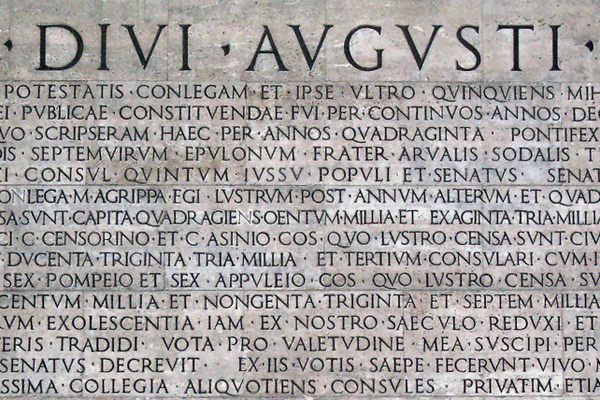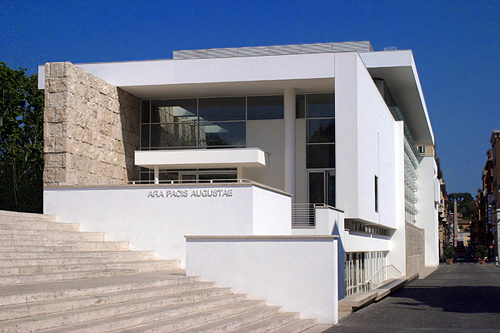
"Four books were then brought in and Drusus read them. In the first were written detailed instructions regarding his funeral; in the second were recorded all the acts which he had performed, which he commanded also to be inscribed upon bronze columns to be set up around his shrine; the third contained an account of military matters, of the revenues, and of the public expenditures, the amount of money in the treasuries, and everything else of the sort that had a bearing upon the administration of the empire; and the fourth had injunctions and commands for Tiberius and for the public."
Cassius Dio, Roman History (LVI.33.1-2)
In AD 13, at the age of seventy-six, Augustus deposited his will with the Vestals, which upon his death on August 19, AD 14 was opened and read before the Senate, together with three other sealed records. Suetonius (CI) relates that there were legacies to family and friends, to the Roman people, and to praetorians and legionaries. There also was the desire that an account of his accomplishments be "cut upon bronze tablets and set up at the entrance to the Mausoleum."

|
Although this inscription has been lost, copies were sent
to the provinces, where they were inscribed in stone. Three of
these provincial inscriptions survive, all from Galatia in Turkey,
the most important of which is the text in both Latin and Greek
from the Temple of Rome and Augustus dedicated at Ancyra (Ankara),
the monumentum Ancyranum. The Latin text is inscribed
on both sides of the inner walls of the pronaos or vestibule
of the temple and is arranged in three columns on the left (Chapters
I-XVIII), surmounted by the title in red, and three on the right
(Chapters XIX-XXXV), an arrangement that presumably duplicated
the original inscription in Rome. The Greek text was carved on
the outside of the cella wall. The Res Gestae can be seen in the lower wall of the Ara Pacis, as one looks down the Via di Ripetta toward the obelisk in the Piazza del Popolo. These travertine panels, the letters cast in bronze, are the only remnants of the original pavilion inaugurated by Mussolini in 1938. |
"In my sixth and seventh consulships [28 and 27 BC], when I had extinguished the flames of civil war, after receiving by universal consent the absolute control of affairs, I transferred the republic from my own control to the will of the senate and the Roman people. For this service on my part I was given the title of Augustus by decree of the senate, and the doorposts of my house were covered with laurels by public act, and a civic crown was fixed above my door, and a golden shield was placed in the Curia Julia whose inscription testified that the senate and the Roman people gave me this in recognition of my valour, my clemency, my justice, and my piety. After that time I took precedence of all in rank, but of power I possessed no more than those who were my colleagues in any magistracy."
Augustus, Res Gestae (XXXIV)
References: Ara Pacis (2006) by Orietta Rossini; Res Gestae Divi Augusti (1924) translated by Frederick W. Shipley (Loeb Classical Library); Res Gestae Divi Augusti (2009) translated by Alison E. Cooley.